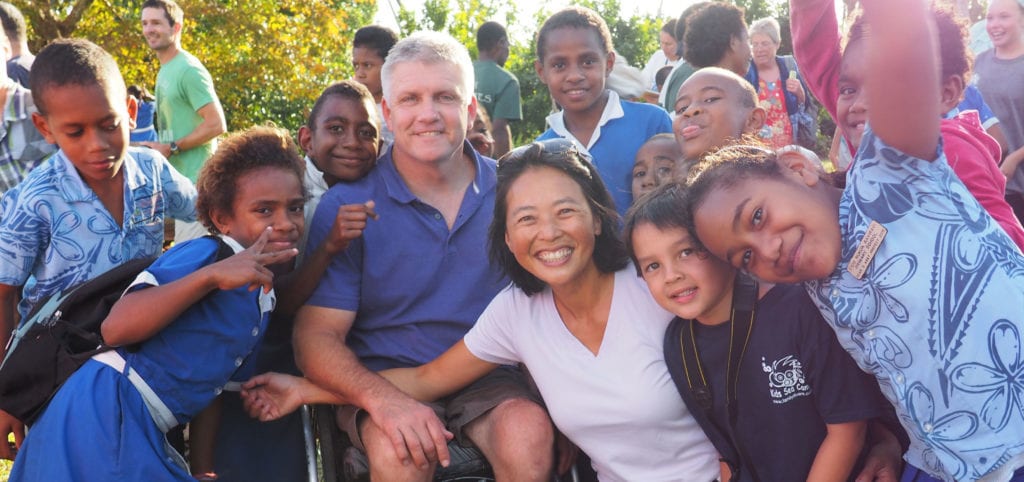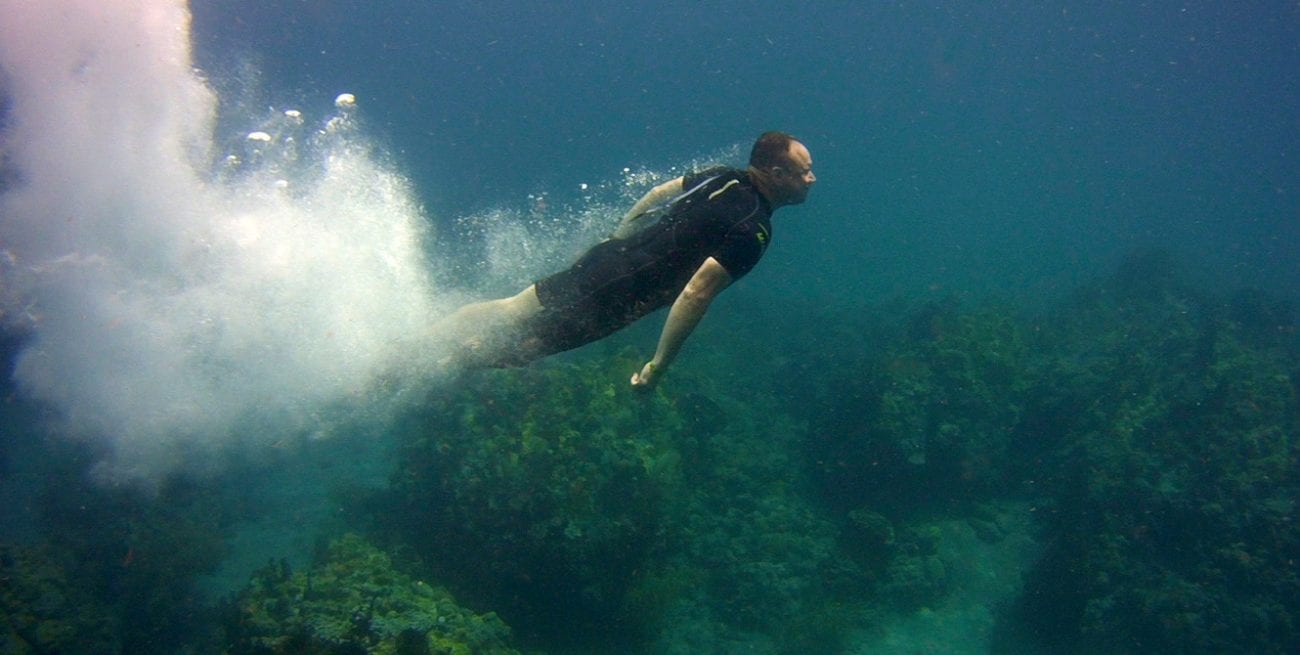Special Needs Services
Kids Sea Camp is special needs diver friendly
We at Kid Sea Camp know many people can have diving issues. Kids Sea Camp has a long history of working hard to be special needs diver friendly with all certified divers. We work hard to help special needs divers enjoy the wonderful underwater world we call home. Our company knows diving brings tremendous joy and growth to individuals that have been given some of life’s hardships and we will work hard to assist certified special needs divers to be able to enjoy diving together as a family. All divers must meet the qualifications and criteria outlined in the risk assessment list below and must have a treating physician clearance for diving or dive-related activities if any of the risks stated below are present.
Kids Sea Camp agents make a point of listening to our clients that have divers with special needs. We want to make it easier for them to have a great family vacation. Kids Sea Camp and Family Dive Adventures need to gather complete and detailed information early in the booking process so we know upfront the needs and expectations of your family member(s). This allows us the opportunity to confirm if we have the ability to design your dive trip. If we can accommodate your needs, our goal is to make your family vacation stress free, fun, and enjoyable, for all divers.
Because we listen, we will research and try to match a resort, dive shop, or dive instructors that will work best with your family’s needs Check out other dive training we provide.
We listen because we care, and Kids Sea Camp and Family Dive Adventures will make the very best effort to either provide or connect you with the services available at select special needs friendly dive resorts to meet your needs. (Kids Sea Camp provides special needs services to participants that have been cleared and qualified to participate in dive or dive-related activities.)

Here are some of the things we do
- Special transfers to and from airports and hotels were available, not all buses are created equal.
- Private scuba instructor to dive 1 on 1 with a medically qualified diver (additional cost does apply)
- Diving transfer assistance on and off dive boats
- Special one-on-one training requests (additional cost does apply)
- Handicap rooms if available at your chosen resort
- Confirmation that the resort is capable to work with your needs when your information and requirements are provided and approved.
- Direct communication with the resort for additional optional land, care, food, or other services needed but not able to be provided by Kids Sea Camp
- Needing a PADI Pro dive buddy (additional cost does apply)
- Refresher course (additional cost does apply)
- Need or want to just dive shallow and have a private instructor to guide you (additional cost does apply)
- Need 2 dive Pros for adaptive diving (additional cost does apply)
- Hearing impaired, we have Hearing impaired dive instructors
- Wheel Chair assist on and off dive boats- If applicable with operation can be provided
- ADD or ADHD divers that are certified and need a private instructor or DM to be one on one with them. (additional cost does apply)
- High functioning Autistic certified divers- private dive instructor. (additional cost does apply)
PADI Medical forms and waiver needed for Scuba Diving related activities.
Kids Sea Camp does not provide or arrange, private daily special needs non-diving care, feeding, medical needs, or in-water supervision of any kind to non-divers. We do not possess the capacity or qualifications to provide this type of service. We can arrange accommodations, and transportation meals, and provide direct contact to resorts for other services if available to be arranged.
Risk Factors to know when considering scuba diving or scuba diving-related activities. A physician is required to make a clinical assessment of the diver to decide whether diving is contraindicated for these categories of medical problems.
Severe risks must be evaluated, addressed, and discussed with your doctor. A physician is required to make a clinical assessment of the diver to decide whether diving is contraindicated for this category of a medical problem.
A severe risk condition implies that an individual will be at a substantially elevated risk of serious injury or death compared with the general population, and should not dive.
Some of the principal conditions in this category are:
- Asthma
- Recent heart surgery
- Serious lung or chest diseases, including but not limited to COVID-19 (particularly where surgery or intubation is involved)
- Any history of Epilepsy, fitting, convulsions, seizures, or taking medications to prevent them.
- Diabetes requires insulin.
- Pneumothorax (collapsed lung) even after a surgical procedure designed to prevent a recurrence
- Any history of neurological abnormality where there is a significant probability of unconsciousness
- Pregnancy
Relative Or Temporary Risks
The following conditions are termed relative risk and will cause a moderate increase in risk, which in some instances may be acceptable. A physician is required to make a clinical assessment of the diver to decide whether diving is contraindicated for this category of a medical problem. Some of these medical problems may be temporary in nature, and Dive Medical will determine if and when the diver can be considered fit to dive.
On the list of significant conditions that may disqualify you from diving or participating in dive-related activities pending a medical assessment are:
- .Breathing issues including frequent or severe attacks of hay-fever or allergy, frequent colds, flu, sinusitis, recent pneumonia, or bronchitis
- Behavioral health, mental or psychological problems (claustrophobia, agoraphobia, active psychosis, panic attacks)
- Recurring complicated migraine headaches whose symptoms or severity impair motor or cognitive function, neurologic manifestations, or taking medications to prevent them
- Recent blackouts, fainting, or partial loss of consciousness
- Head injury with loss of consciousness in the past five years
- Intracranial Tumor or Aneurysm
- Frequent or severe motion sickness
- Dysentery or dehydration requiring medical intervention
- Past dive accidents or decompression sickness
- Inability to perform moderate exercise
- Recurrent back problems, or back or spinal surgery
- Back, arm, or leg problems following surgery, injury, or fracture
- High blood pressure or taking medication to control it
- Heart attack, heart disease, angina, heart surgery, or blood vessel surgery
- Sinus surgery
- Ear disease or surgery, recurrent ear problems, hearing loss, or ear-related .problems affecting the balance
- Hemophilia, bleeding, or other blood disorders
- Hernia
- Ulcers or ulcer surgery
- Colostomy or ileostomy
- Recreational drug use or alcoholism, or treatment for these in the past five years
- Regularly taking prescription or non-prescription medications (With the exception of birth control or anti-malarial treatments)
- Have a high cholesterol level
- Have a family history of heart attack or stroke
- Are currently receiving medical care
- Have diabetes mellitus, even if controlled by diet alone

